August 3, 2024
Choosing The Best Opiate Addiction Treatment Program
Find the best opiate addiction treatment program tailored to your needs.
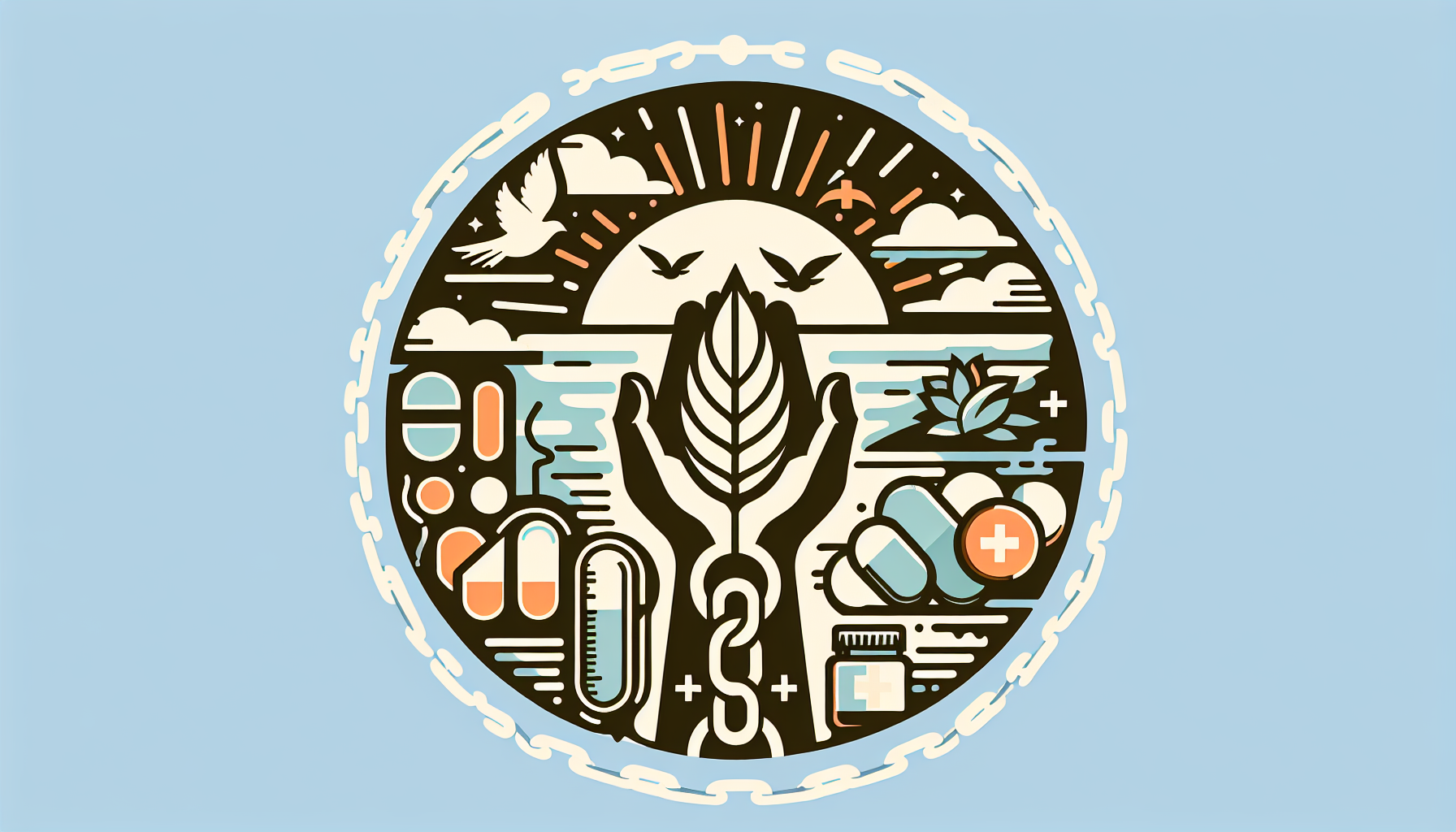
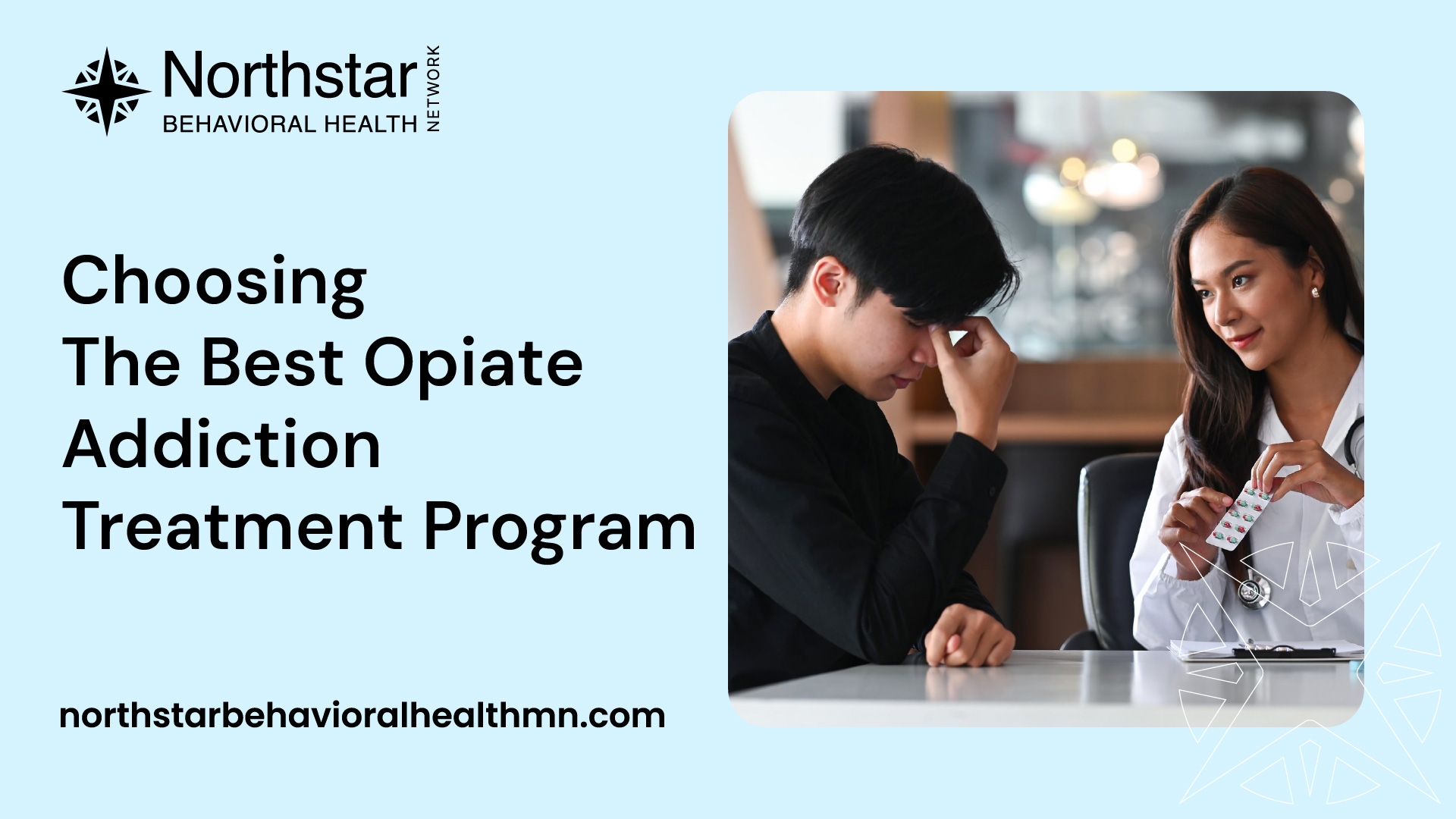
Understanding Opiate Addiction
Opiate addiction is a serious and complex condition that affects individuals from all walks of life. Understanding the impact of opiate addiction and why seeking treatment is important is crucial in helping individuals make informed decisions about their recovery journey.
The Impact of Opiate Addiction
Opiate addiction can have devastating effects on a person's physical, mental, and emotional well-being. The prolonged use of opiates can lead to a range of health issues, including respiratory problems, liver damage, and increased risk of infectious diseases. The addictive nature of opiates can also result in financial difficulties, strained relationships, and legal troubles.
Beyond the physical and social consequences, opiate addiction takes a toll on a person's mental and emotional state. It can lead to feelings of hopelessness, anxiety, depression, and a diminished sense of self-worth. Over time, the need to obtain and use opiates becomes the central focus of a person's life, often at the expense of personal and professional responsibilities.
Why Seeking Treatment is Important
Seeking treatment for opiate addiction is crucial for several reasons. Firstly, professional treatment programs provide a structured and supportive environment where individuals can receive the care and guidance necessary to overcome their addiction. These programs are staffed by trained professionals who specialize in addiction treatment and understand the unique challenges faced by individuals with opiate addiction.
Secondly, treatment programs offer a range of evidence-based therapies and interventions tailored to address the specific needs of individuals struggling with opiate addiction. These therapies, such as cognitive-behavioral therapy (CBT) and medication-assisted treatment (MAT), help individuals develop coping strategies, address underlying issues, and manage cravings and withdrawal symptoms.
Furthermore, treatment programs provide a safe and supportive community of peers who are going through similar experiences. This sense of belonging and understanding can be invaluable in helping individuals navigate the challenges of recovery and maintain long-term sobriety.
By seeking treatment for opiate addiction, individuals can break free from the grip of addiction, regain control of their lives, and work towards a healthier and more fulfilling future.
If you or someone you know is struggling with opiate addiction, it's important to take the first step towards recovery by reaching out for help. There are numerous resources available, such as holistic treatment centers for addiction, that provide comprehensive and personalized treatment options to meet individual needs. Remember, recovery is possible, and seeking treatment is an important step on the path to a brighter future.
Factors to Consider in Choosing a Treatment Program
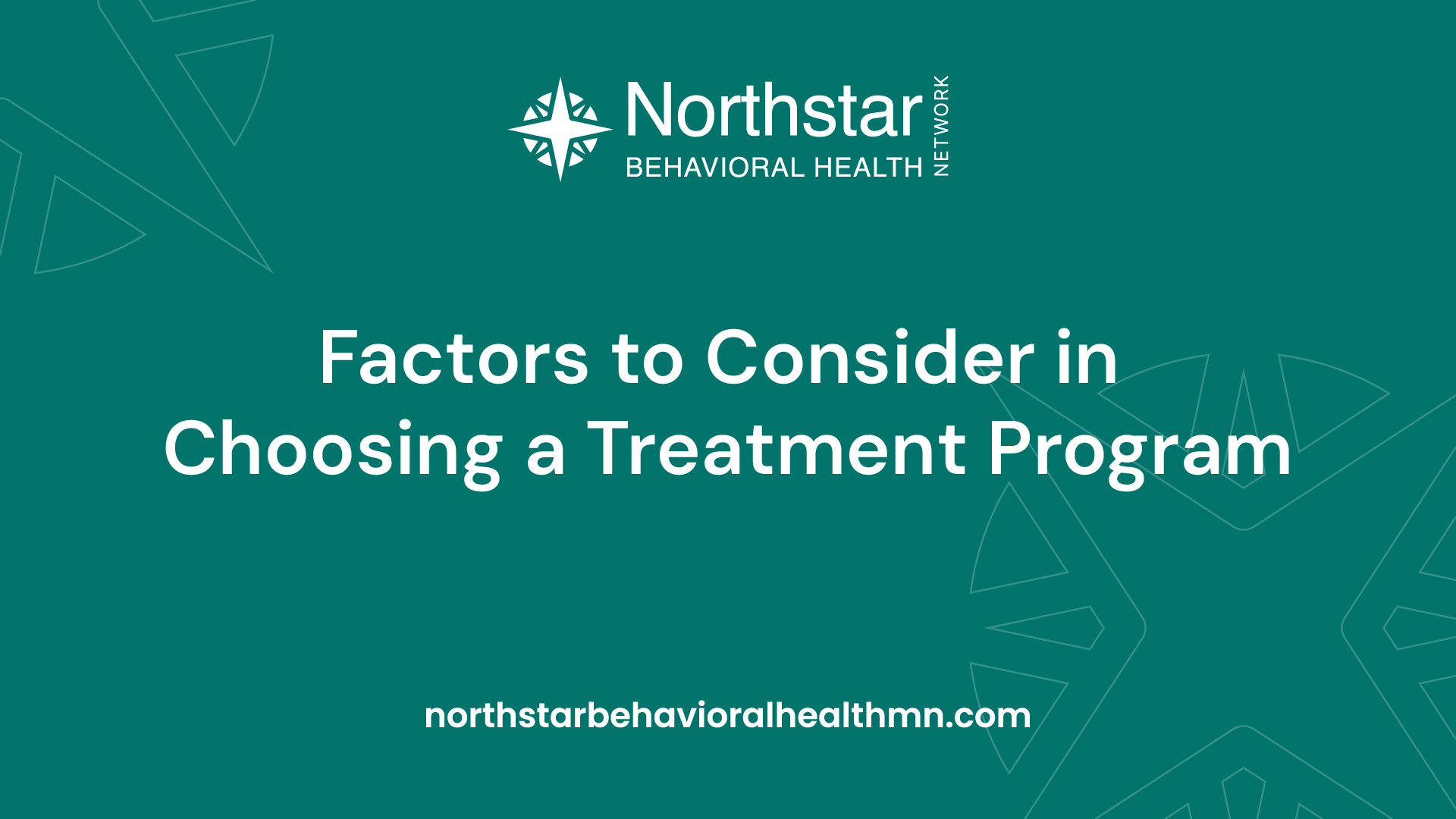
When selecting the best opiate addiction treatment program for your needs, it's important to consider several factors that can contribute to your recovery journey. These factors include personalized treatment plans, therapy and counseling options, and medical support and supervision.
Personalized Treatment Plans
A crucial aspect of any effective opiate addiction treatment program is the presence of personalized treatment plans. Each individual's journey to recovery is unique, and a one-size-fits-all approach may not address their specific needs. A good treatment program will conduct a thorough assessment to understand the extent of the addiction and any co-occurring mental health conditions.
Based on this assessment, a personalized treatment plan can be developed, taking into account factors such as the individual's physical and psychological health, personal preferences, and goals for recovery. Personalized treatment plans may include a combination of therapy, medication-assisted treatment, support groups, and other interventions tailored to the individual's specific needs.
Therapy and Counseling Options
Therapy and counseling play a vital role in opiate addiction treatment. Look for a treatment program that offers a variety of evidence-based therapy options to address the psychological and emotional aspects of addiction. Individual therapy sessions provide a safe and confidential space to explore underlying issues, develop coping mechanisms, and learn relapse prevention strategies.
Group therapy allows individuals to connect with peers facing similar challenges, fostering a sense of support and community. Family therapy can also be beneficial, as it involves loved ones in the recovery process and helps repair relationships. Additionally, specialized therapies such as cognitive-behavioral therapy (CBT), dialectical behavior therapy (DBT), and trauma-focused therapy can be effective in addressing specific needs.
Be sure to inquire about the availability of these therapy options when choosing a treatment program.
Medical Support and Supervision
Opiate addiction treatment often requires medical support and supervision, particularly during the detoxification phase. Detoxification is the process of safely managing withdrawal symptoms as the body eliminates the drug from its system. It's important to choose a treatment program that offers medical support during this challenging phase to ensure safety and minimize discomfort.
Medical professionals can provide medications to alleviate withdrawal symptoms and monitor the individual's overall health throughout the detox process. In addition to detoxification, ongoing medical support may be necessary to manage any underlying health conditions or co-occurring mental health disorders.
A comprehensive treatment program should have qualified healthcare professionals who can provide the necessary medical support and supervision throughout the entire treatment journey.
By considering these factors - personalized treatment plans, therapy and counseling options, and medical support and supervision - you can make an informed decision when choosing the best opiate addiction treatment program for your needs. Remember, recovery is a unique and personal journey, and finding a treatment program that aligns with your specific requirements can greatly enhance your chances of success.
Types of Opiate Addiction Treatment Programs
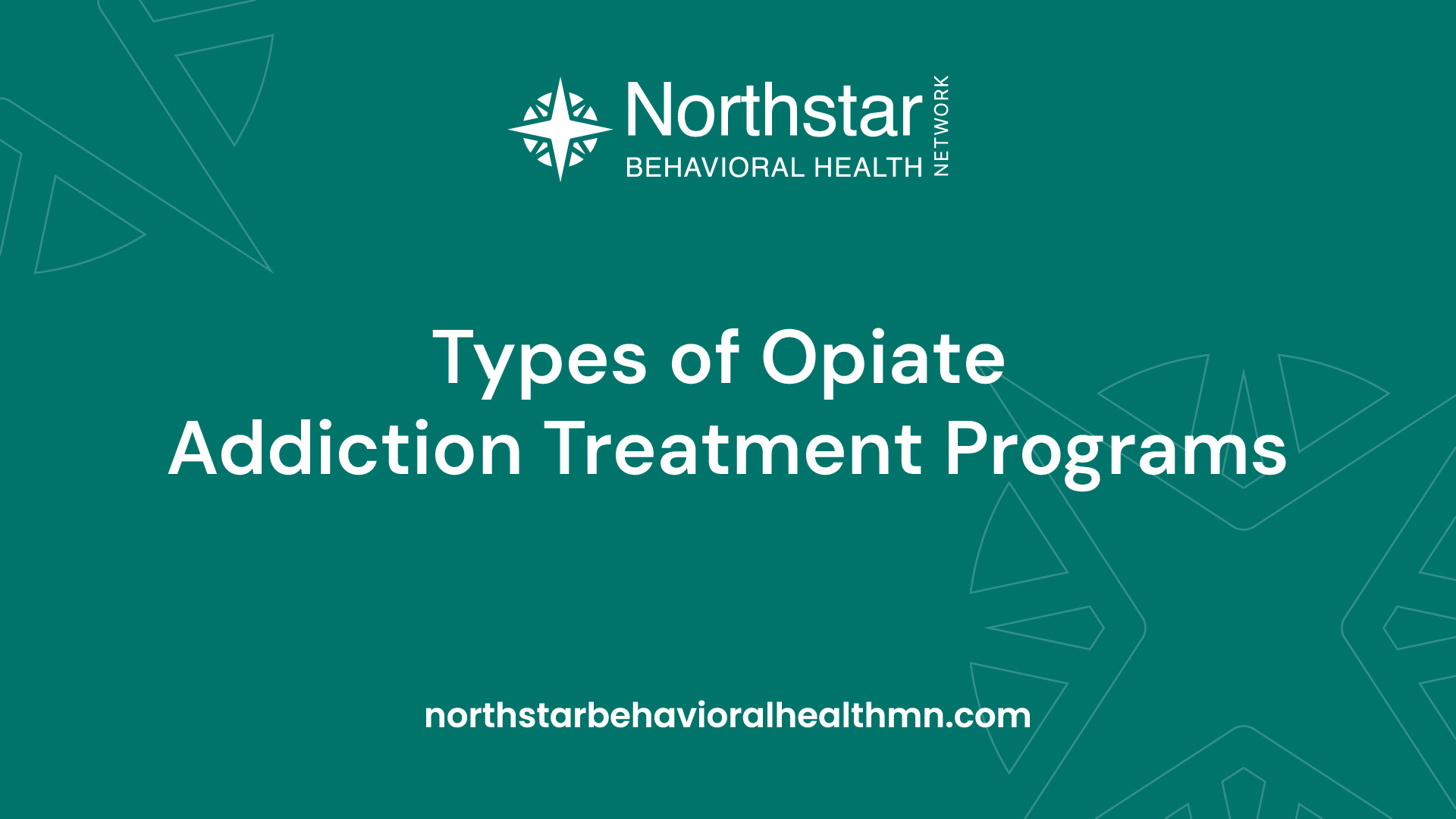
When selecting the best opiate addiction treatment program for your needs, it's important to understand the different types of programs available. Each type has its own unique characteristics and level of intensity. In this section, we will explore three common types of opiate addiction treatment programs: inpatient treatment programs, outpatient treatment programs, and residential treatment programs.
Inpatient Treatment Programs
Inpatient treatment programs, also known as residential programs, provide intensive care and support for individuals with opiate addiction. These programs typically require participants to reside at the treatment facility for a designated period, allowing for round-the-clock medical supervision and support.
Inpatient programs offer a structured environment where individuals can focus solely on their recovery without distractions from the outside world. The treatment approach often includes a combination of individual counseling, group therapy, and educational sessions to address the physical, psychological, and emotional aspects of addiction.
Table: Comparison of Inpatient Treatment Programs
Outpatient Treatment Programs
Outpatient treatment programs offer flexibility for individuals who prefer to continue living at home while receiving treatment for opiate addiction. These programs allow participants to attend scheduled therapy sessions and counseling appointments while maintaining their daily routines and responsibilities.
Outpatient programs vary in intensity and duration, with options ranging from standard outpatient programs to intensive outpatient programs (IOP). Standard outpatient programs typically involve fewer weekly sessions, while IOPs require more frequent attendance.
The treatment modalities in outpatient programs may include individual counseling, group therapy, and educational sessions. These programs provide support, guidance, and tools to help individuals overcome opiate addiction while allowing them to continue their daily lives.
Table: Comparison of Outpatient Treatment Programs
Residential Treatment Programs
Residential treatment programs combine elements of both inpatient and outpatient programs. These programs provide individuals with a structured and supportive living environment while allowing them to engage in treatment during the day.
Participants in residential programs reside in a home-like setting, often with other individuals in recovery. The treatment approach typically includes a combination of therapy sessions, counseling, and skill-building activities. Residential programs offer a supportive community where individuals can build connections and receive ongoing support from peers and staff.
Table: Comparison of Residential Treatment Programs
When choosing the best opiate addiction treatment program, it's essential to consider your personal needs, level of addiction, and support system. Consulting with addiction professionals and seeking advice from trusted sources can provide valuable guidance in making an informed decision. Remember, every individual's journey to recovery is unique, and finding the right program can greatly increase the chances of successful long-term recovery.
Holistic Approaches to Opiate Addiction Treatment
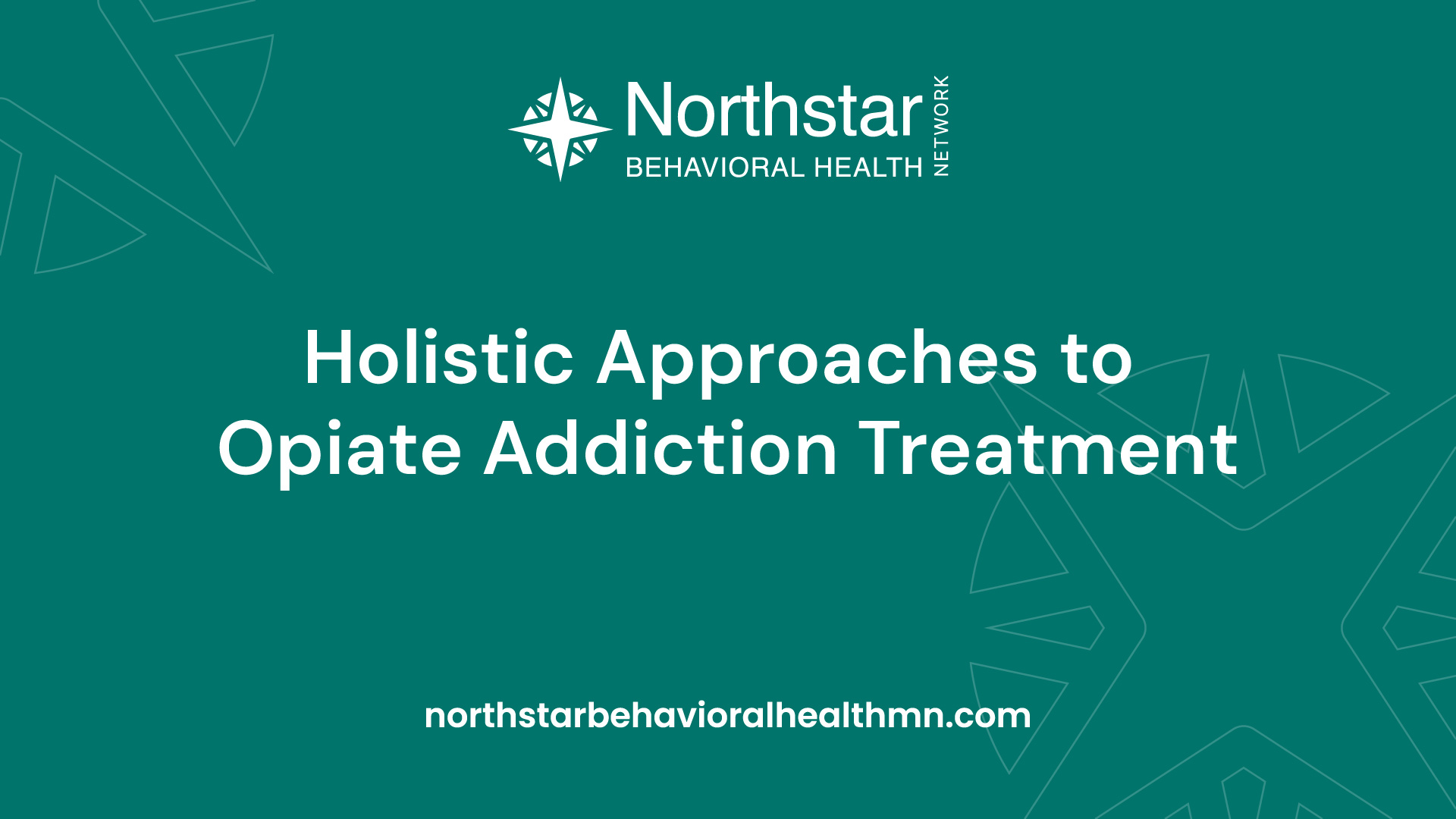
When it comes to opiate addiction treatment, holistic approaches have gained recognition for their comprehensive and integrated approach to healing. Holistic treatment centers focus on addressing the mind, body, and spirit to promote overall well-being and long-term recovery. Here are three key components of holistic opiate addiction treatment:
Mind-Body-Spirit Connection
Holistic treatment centers recognize the interconnectedness of the mind, body, and spirit in the recovery process. They emphasize the importance of healing and restoring balance in all aspects of a person's being. Through various therapeutic modalities such as counseling, mindfulness practices, and meditation, individuals are encouraged to explore their emotions, thoughts, and beliefs, fostering self-awareness and personal growth.
By nurturing the mind-body-spirit connection, holistic treatment centers aim to support individuals in developing a strong foundation for sustained recovery.
Alternative Therapies
In addition to traditional therapies, holistic treatment centers incorporate alternative therapies into their programs. These therapies may include yoga, acupuncture, art therapy, equine therapy, and more. Alternative therapies provide individuals with unique opportunities for self-expression, stress reduction, and self-discovery. By engaging in these activities, individuals can explore different avenues of healing and find healthy ways to cope with challenges and triggers.
Alternative therapies can also promote physical and emotional well-being, helping individuals build resilience and develop healthy habits for a successful recovery journey.
Nutritional and Wellness Components
Holistic treatment centers recognize the importance of nutrition and overall wellness in supporting addiction recovery. They emphasize the significance of a well-balanced diet, regular exercise, and adequate sleep. Nutritional counseling and education are often provided to help individuals understand the impact of nutrition on their physical and mental well-being.
Additionally, holistic treatment centers may offer wellness activities such as fitness classes, meditation sessions, and outdoor excursions to promote overall health and reduce stress. By prioritizing nutrition and wellness, individuals can enhance their physical strength, mental clarity, and emotional stability, which are vital for long-term recovery.
By incorporating these holistic approaches into opiate addiction treatment, individuals can benefit from a more comprehensive and integrative healing experience. The mind-body-spirit connection, alternative therapies, and focus on nutritional and wellness components provide individuals with a well-rounded approach to recovery.
If you're interested in learning more about holistic treatment centers or other addiction treatment options, check out our articles on what is a holistic treatment center for addiction? and alcohol treatment near Wilkes-Barre PA for your addiction. Remember, seeking professional advice is crucial in selecting the best opiate addiction treatment program for your needs.
Evaluating Treatment Program Effectiveness
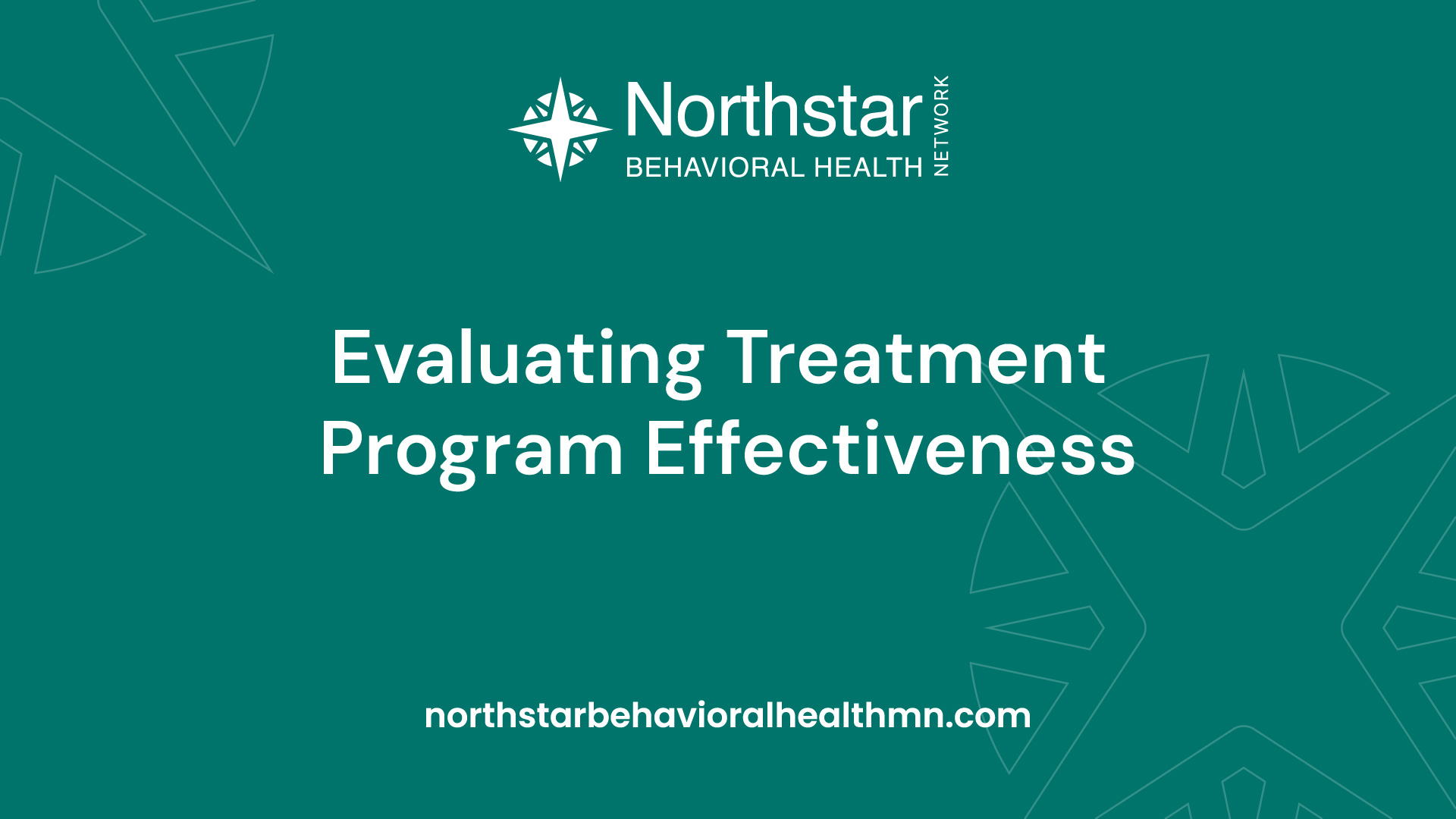
When selecting the best opiate addiction treatment program for your needs, it's important to evaluate the effectiveness of each program. By considering success rates, patient reviews and testimonials, as well as aftercare and support services, you can make a well-informed decision about the program that will give you the best chances of recovery.
Success Rates and Track Record
One of the key factors to consider when evaluating a treatment program is its success rates and track record. Look for programs that openly share their success rates and provide evidence of their effectiveness in treating opiate addiction. A reputable program will have data that demonstrates positive outcomes and long-term recovery for their patients. However, it's important to keep in mind that success rates can vary depending on individual circumstances and commitment to the program.
Patient Reviews and Testimonials
Reading patient reviews and testimonials can provide valuable insights into the experiences of individuals who have completed the treatment program. Look for reviews that discuss the effectiveness of the program, the support provided, and the overall satisfaction of the patients. While individual experiences may differ, positive reviews and testimonials can give you a sense of the program's strengths and the impact it has had on others.
Aftercare and Support Services
Aftercare and support services play a crucial role in the long-term success of opiate addiction treatment. A comprehensive treatment program should offer a range of aftercare services to support individuals in their transition back to everyday life. These services may include ongoing therapy and counseling, support groups, relapse prevention programs, and access to community resources.
The availability and quality of aftercare and support services can greatly contribute to maintaining sobriety and preventing relapse.
To evaluate the aftercare and support services provided by a treatment program, consider the following:
- Is there a clear plan for continuing care after the completion of the program?
- Are there resources available for ongoing counseling and therapy?
- Are support groups or alumni programs available to provide ongoing support?
By thoroughly evaluating the success rates, patient reviews and testimonials, as well as the aftercare and support services offered by each treatment program, you can make an informed decision about which program aligns best with your needs and goals. Remember, each individual's journey is unique, and finding the right program that resonates with you is an important step towards your recovery.
Making the Right Choice
When selecting the best opiate addiction treatment program for your needs, it's important to consider several factors. Making an informed decision can greatly enhance your chances of successful recovery. Here are three key aspects to keep in mind:
Seeking Professional Advice
Before making a final decision, it is highly recommended to seek professional advice from addiction specialists or healthcare professionals. They can provide valuable insights and guidance based on their expertise and experience. A professional can help assess your specific needs and recommend treatment options that align with your individual circumstances.
Furthermore, professionals can assist in evaluating the quality and reputation of different treatment programs. They can provide information about the effectiveness of the program, success rates, and the types of therapies offered. Seeking their advice can help you make an informed decision and choose a program that best suits your requirements.
Considering Financial Options
Finances can be a significant concern when it comes to addiction treatment. It's important to consider the financial aspect and explore the available options. Many treatment programs accept various forms of insurance, so it's essential to check with your insurance provider to understand your coverage. Some programs may also offer financing options or sliding scale fees based on income.
Financial considerations should not be a deterrent to seeking treatment. If you're unsure about your options, reach out to the treatment centers directly and inquire about financial assistance programs or scholarships that may be available. Remember, your well-being is a priority, and there are resources to help you access the treatment you need.
Committing to Recovery
Choosing the right treatment program is just the first step. It's equally important to commit to the recovery process and actively participate in the program. Recovery requires dedication, perseverance, and a willingness to make positive changes in your life.
Once you've enrolled in a treatment program, it's crucial to fully engage with the therapy and counseling options provided. Take advantage of the resources available, attend support groups, and actively participate in individual and group therapy sessions. Remember, recovery is a journey, and your commitment to the process plays a significant role in the outcomes.
By seeking professional advice, considering financial options, and committing to your recovery, you can make the right choice when selecting an opiate addiction treatment program. Remember, you don't have to navigate this journey alone. Reach out to professionals and support networks for assistance. Recovery is possible, and with the right program and dedication, you can unlock your potential for a healthier, drug-free life.

.jpg)




.jpg)

